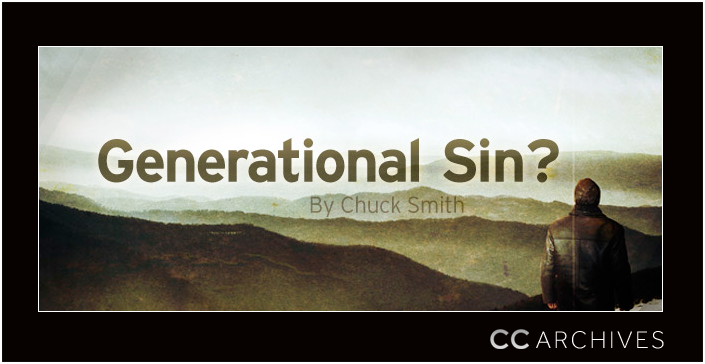
Have you ever heard a sermon on the devastation caused by “generational sin”? Preachers base their frightening comments on texts like Exodus 20:5: “I, the Lord your God, am a jealous God, visiting the iniquity of the fathers upon the children to the third and fourth generations of those who hate Me.”
Some people hear such a verse and say, “God’s not fair! Why should children suffer for their parents’ sin?”
Let’s admit that the sins of parents often have terrible consequences upon their children. It’s unavoidable. Many studies have shown, for example, that children of divorce tend to struggle in certain predictable ways, no matter how amicable the separation or how well the former partners get along with each other after the divorce. Despite any of that, their children still suffer.
Most children feel a deep sense of rejection when their dad takes off with another woman. Despite giving repeated assurances of his love, they just don’t believe him. Because his actions speak louder than his words, they feel rejected and even responsible for the broken marriage. Many times, in fact, a child feels even more rejected than the wife or husband left behind. Children are the ones who generally suffer the most—and so the sins of the parents are visited upon their sons and daughters.
Of course, this doesn’t mean that if you had unrighteous parents, then you must face the wrath of God for the rest of your life—because, after all, the Bible says, “He’s going to visit the sins of the parents on the children to the third and fourth generations.” Don’t overlook the crucial condition there: “To the third and fourth generations of those who hate Me” (Exodus 20:5, italics added for emphasis).
If you continue in the hatred of God that your parents modeled, then God’s judgment will continue, even to the third and fourth generations.
Oh, but don’t stop with verse 5, as far too many preachers do. Continue reading through to Exodus 20:6, which puts the whole thing in a much more hopeful context: “But showing mercy to thousands, to those who love Me and keep My commandments” (Exodus 20:6).
While it may logically follow that a boy raised in an ungodly atmosphere is apt to grow up to be very ungodly himself, thank God for the love and grace of Jesus Christ. You can break any hurtful or wrong relationship with the past. Maybe your parents did not bring you up in the fear and admonition of the Lord; perhaps they set a very poor spiritual example. But thank God, that chain can be broken.
“Therefore, if anyone is in Christ, he is a new creation; old things have passed away; behold, all things have become new” (2 Corinthians 5:17).
You don’t have to suffer because of your parents’ hatred of God or because of their mistakes. You can break that curse. When Moses repeats this speech in Deuteronomy 7:9, he revises it to make his point even plainer. He says, “Therefore know that the Lord your God, He is God, the faithful God who keeps covenant and mercy for a thousand generations with those who love Him and keep His commandments.”
Do you see the stark contrast? While sin may hold sway for three or four generations in families whose parents hate God, the Lord displays His love and mercy to a thousand generations of those who love Him and keep His commandments.
– excerpted from Love The More Excellent Way by Chuck Smith






